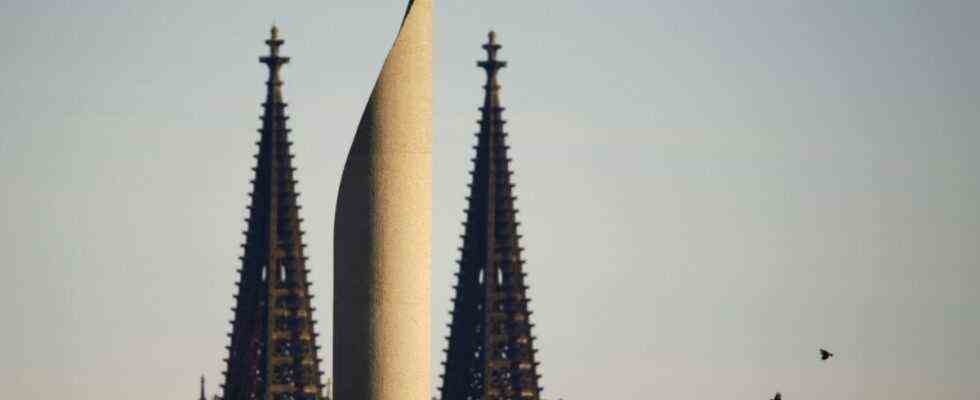On Friday, no muezzin will call the noon prayer over the loudspeaker in Cologne – although it is now allowed in North Rhine-Westphalia’s only megacity. “We have not yet received any applications for approval,” said a spokeswoman for the city of Cologne on Thursday and gave a simple reason: “Most mosque communities have no loudspeaker system for this.” The city does not expect applications until later, three of the more than 40 municipalities had expressed interest.
With her model project, Cologne’s independent mayor Henriette Reker has caused headlines and controversy across the country. Cologne is not the first German city to allow the reputation. In the Fatih Mosque in Düren, North Rhine-Westphalia, the muezzin has been calling out three times a day since the 1990s. There are no nationwide uniform guidelines. In the Islamic world, the call of the muezzin from the mosque tower heralds the time for prayer. The Koran prescribes five prayers a day in the direction of Mecca, the community prayer of the men in the mosque is only compulsory on Fridays.
In Cologne, congregations can request calls for Friday noon prayer, limited to two years. The call to prayer may sound between noon and 3 p.m. for a maximum of five minutes. The volume is determined depending on the location of the mosque, the neighborhood must be informed in good time with flyers and be given a contact person in the mosque community.
Mayor Reker justified her initiative with the Basic Law and received encouragement from Christian Lindner, among others. “We have the freedom to practice religion, and that includes that,” said the FDP leader. Reker referred to the many Muslims born in Cologne as an integral part of urban society: “Anyone who doubts this is questioning Cologne’s identity and our peaceful coexistence.” If the call of the muezzin sounds in addition to the church bells, it is because “diversity is valued and lived in Cologne,” says Reker.
“Curtsy to Erdogan’s political goings-on”
According to the Federal Office for Migration and Refugees, there were between 5.3 and 5.6 million Muslims in Germany in 2019. A particularly large number live in Cologne, where Germany’s largest mosque was opened three years ago in the presence of Turkish President Recep Tayyip Erdoğan. The Turkish-Islamic Union Ditib is still advising on how to deal with the call to prayer in the central mosque. The chairman of the Central Council of Muslims, Aiman Mazyek, welcomes the project: “Cologne is sending a sign of tolerance and diversity into the world.” The call of the muezzin is an integral part of Muslim prayer and is taken for granted in many places in Europe and the USA.
Skeptics fear, however, that the call to prayer could be understood as a show of power by controversial Muslim associations. “This symbolic politics serves the wrong people,” criticized Lale Akgün, the former Islamic representative of the SPD parliamentary group. She emphasized the close ties between the Ditib and the Turkish government: “The permission to call the muezzin from the Ehrenfeld mosque is a curtsey to Erdogan’s political activities, including in Germany.”
The sociologist and publicist Necla Kelek said the German press agencyOnly those who adhere to social rules can invoke tolerance. “If only men are invited to Friday prayer and women are only given a separate room, then an archaic model of society will be lived there,” warned Kelek.

